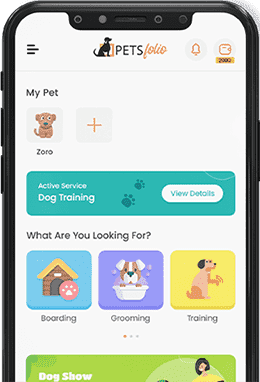Is Rice Good for Dogs? Safe Feeding Guide
Most pet owners always inquire whether human foods, such as rice, can be given to the dogs when it comes to feeding them. Rice is widely used in most homes and is often a side dish for humans; however, is rice for dogs good or bad? It is critical to know the impact that rice has on the health of a dog so that your pet remains healthy and happy.

Types of Rice and Their Safety for Dogs
Not all rice is created equal. It has a number of varieties, but the most popular are the white, brown, and wild rice.
- White Rice: White rice is very digestible, not rich in fiber, and does not strain the stomach of a dog. It is also commonly prescribed to dogs with a history of digestive disturbance, e.g., diarrhea or vomiting. It is easy to digest, and its simplicity renders it easy on sensitive stomachs.

- Brown Rice: Brown rice is more nutritious than white rice as it has more fiber, vitamins, and minerals. It is, however, more difficult to digest, thus it may not be appropriate in dogs with sensitive stomachs or some health conditions.
- Wild Rice: Wild Rice is not rice, but the small portions of it are safe for dogs. It is also nutritious, but it must be thoroughly cooked before a meal.
Health Benefits of Rice for Dogs
There are several possible health benefits of feeding rice to dogs:
- Digestive Aid: White rice is simple to absorb and may be useful in calming down an angry stomach. It can be found in a lot of dull food that is recommended by doctors.
- Energy Source: Rice is a good source of carbohydrates, providing an easy and fast source of energy to active dogs.
- Nutrient Boost: B vitamins, magnesium, and iron are necessary nutrients that are found in brown and wild rice, and they aid in health.
- Weight Control: Rice can be included in a healthy diet with lean protein to help the dog maintain a healthy weight.

How to Safely Feed Rice to Dogs
Although rice is mostly safe, it is possible to remember a couple of rules:
- Cooking: It is always important to cook rice before feeding your dog. Uncooked rice is difficult to digest and can result in stomach upsets.
- Do not Season: Do not add salt, butter, spices, or sauces. Dogs are sensitive to many seasonings, which can irritate the digestive system of the animal.
- Moderation is Essential: Rice cannot provide a substitute for the main menu of a dog. It is to be an infrequent supplement or component of a balanced diet.
- Add Protein: When cooking rice, combining it with protein-free or low-protein food sources, such as chicken or turkey, makes the diet balanced and provides the right amount of protein.
Rice and Dogs with Special Health Needs
A few dogs can take rice better than others:
- Digestive Problems: White rice can be included in a bland diet so that dogs who have recently had diarrhea, vomited, or had other gastrointestinal upset may recover.
- Allergies: Rice is a low food allergen and can therefore be used in dogs with food allergies or food sensitivities.
- Obesity: Although rice is a source of energy, excessive consumption may cause weight gain. Controlling portions is a must.

Nevertheless, some conditions are to be taken care of:
- Diabetes: Rice is very high in carbohydrates, which spike blood sugar levels. Rice should be given to diabetic dogs only after the advice of the veterinarian.
- Kidney Issues: Dogs with kidney diseases might be required to avoid foods with high phosphorus content, and this includes some forms of rice.
How to Introduce Rice to Your Dog’s Diet
You should add rice to your dog’s diet in small increments:
- Start Small: Start with a single tablespoon of cooked rice as an additive to the normal food of your dog.
- See: Keep an eye on your dog in case of digestive disturbance, such as diarrhea, vomiting, or gas.
- Adjust Quantity: You can also add the portion gradually according to the ability and size of your dog.
- Eat in Moderation: Do not replace other important food groups with rice, but keep it as a supplement (according to their primary food groups).
Rice Recipes for Dogs
The following are some easy methods of cooking rice for dogs:
Plain Rice and Chicken: Cook chicken and white rice. Blend them to create a tasteless meal that is perfect for digestive problems.
Brown Rice and Vegetables: Cook brown rice and combine it with vegetables that are safe to eat, such as carrots or peas, to provide more fiber and nutrients.
Rice and Lean Meat: Use lean ground beef or turkey to make a rich and balanced meal in the form of rice.
Never include onions, garlic, or other foods that are poisonous to dogs.
Foods to Avoid When Serving Rice
While rice itself is safe, some additives and combinations can be harmful:
- Seasoned Rice: Salt, soy sauce, and spices are harmful to dogs.
- Fried Rice: Oils and seasonings in fried rice can upset your dog’s stomach and cause obesity.
- Rice with Toxic Ingredients: Never mix rice with chocolate, raisins, grapes, onions, or garlic.
Final Thoughts
So, is rice good for dogs? Yes, yes, when it is done well. Rice is a low-calorie, simple-to-digest nutrient that aids in digestion, is a source of energy, and supplements a balanced diet. White rice is also great with dogs that have sensitive stomachs, whereas brown or wild rice can provide healthy dogs with additional nutrients. Cook rice all the time, do not use seasonings, and eat in small portions.
The rice is to add to the regular, properly balanced meals of your dog; it should not replace them. At Petsfolio, experts emphasize the importance of moderation and consulting a vet before adding rice to a dog’s diet. Your veterinarian should be consulted before adding rice to the diet of your dog in case of health issues or other dietary limitations.
With a safe and proper feeding of rice, you can experience the advantage of this simple and versatile food and also have your furry companion happy and healthy.
FAQs About Rice for Dogs
- Can dogs eat rice every day?
No, dogs can indeed eat rice daily in moderate proportions, provided it is included in a balanced diet that comprises protein and vegetables.
- Between white and brown rice, which is the better rice to feed dogs?
White rice is simpler to digest and suits upsets more than brown rice, which is more nutritious but difficult to digest.
- Is rice a benefit in the treatment of diarrhea in dogs?
Yes, white rice can be commonly applied in diarrhea or gastroenteric upset in the effort of getting a dog back on its feet.
- Can puppies eat rice?
Yes, the puppies can be fed with cooked simple rice, but they should be fed on high-quality puppy food.
- Does rice make dogs gain weight?
Rice also contains a lot of carbohydrates and therefore may cause weight gain when overfed on. Always serve in moderation.
- Should rice be mixed with meat for dogs?
Yes, combining rice with lean proteins like chicken, turkey, or beef provides a balanced and nutritious meal.
Send us a Message
Enjoy this post?
Check out some more great articles and other content.
It is quite possible to panic when you observe your puppy vomiting frequently, especi...
Read The ArticlePets are not animals; they are a family. As with any other loved one, they need care,...
Read The ArticleIt is a permanent state of bliss to own a dog, but it can also be very frustrating at...
Read The Article
 Download App
Download App Join
Join Support
Support












